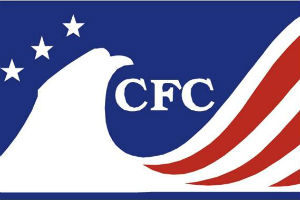SAN DIEGO, CALIF. — In the end, the proxy votes of hundreds, perhaps thousands, of Direct Marketing Association (DMA) members were never counted. And board member Gerry Pike, who was denied a second term by the DMA’s board nominating committee, ended up keeping his seat, gaining seats for three new members and moving the organization down the path to a potential name change.
Close to 150 people were in the Crystal Ballroom of the Grant Hotel here, as part of the DMA’s annual business meeting held in conjunction with its annual conference. There are approximately 3,100 voting members of The DMA. They were there to see the main event, the duel of proxy statements between Pike and The DMA board. Pike, CEO of DMSA, Inc., launched his proxy fight shortly after being told he would not be nominated for a second term on the board.
Both sides flooded DMA members with emails during the weeks leading up to the meeting. DMA also threatened legal action against Pike for allegedly improper use of The DMA’s list, which he has denied. Neither side would reveal how many proxies they had, although Pike said, “I assume I had more than management.”
It never got to a vote. In a closed-door session the sides worked out a deal whereby Pike would keep his seat on the board, DMA replaced several nominees with “reform” candidates and announced the establishment of a new bylaws committee to deal with issues from members. The DMA also established an “adjunct member” which will work on board issues but not have a vote. Two seats were also added to the executive committee, Pike said.
Pike listed three goals on his site, www.abetterdma.org: “Ensure that members come first at every level: policies, services, programs & support; get DMA management compensation back in line with industry standards; and, make DMA relevant and the market leader again, before it’s too late.”
The deal does nothing regarding his issue of executive compensation, other than the board members saying they will be more diligent and open about how the senior staff is compensated. As reported previously in The NonProfit Times, John Greco, Jr., DMA president and CEO, receives $838,528 in salary and benefits, according to The DMA’s most recent federal Form 990 filing. The DMA president’s salary was $506,685 in FYE 2005 and has risen by double-digits each year: 11 percent to $560,188 in FYE 2006; 25 percent to $698,760 in FYE 2007, and 10 percent to $768,748.
According to the ASAE & The Center for Association Leadership, the average salary for an association executive in New York City is $222,927 with benefits bringing it to $266,304. According to ASAE, nationally for an organization with revenue of more than $15 million, the chief executive is paid $359,047, with benefits bringing that to $468,852.
Greco was at the business meeting but did not speak during the session.
Greco’s contract expires at the end of June 2010. Incoming board chair Eugene R. Raitt was asked if a search was on for a new CEO or if there are negotiations ongoing with Greco. He called the question, “too hypothetical.” Asked why an expiring contract on a CEO who was central to a proxy fight was too hypothetical, Raitt said, “A lot of people have one-year contracts.”
Donn Rappaport announced the names of the nominees and those in attendance immediately buzzed when Pike was among the candidates put forward for ratification. Outgoing Board Chair Kelly B. Browning asked members if there was any discussion. Pike called out from the back of the room, was recognized by the chair, and stepped to a microphone in front of the members.
Pike said that he would be voting the proxies for the slate of candidates. “Your board has responded,” to the proxy votes, he said.
Raitt said that “with all due respect to my colleague Gerry Pike” that The DMA had already been moving in this direction but admitted that the proxy fight pushed things along more quickly.
He said the organization has always welcomed users of all direct marketing tactics but also admitted that online and social networking marketers were not represented on the board. Raitt said the organization will examine all options “up to and including the name of the organization.”
Newly elected to the board were: Chris Bradley, president & CEO, Cuddledown; Matt Blumberg, CEO & Chairman, Return Path; Ken A. Dawson, chief marketing officer, Infocision; Arjan Dijk, director of global acquisition marketing, Google; Bill L. Fairfield, CEO, infoGROUP Inc.; Edwin P. Garrubbo, CEO, Creative Commerce, LLC; John B. Kahan, general manager, Business and Customer Intelligence, Online Services Division, Microsoft; John A. Meyer, president & CEO, Acxiom; Gian-Carlo Peressutti, senior vice president, public affairs, RR Donnelley; Nicholas P. Staheyeff, vice president, chief financial officer international, eBay International AG; David R. Verklin, CEO, Canoe Ventures, LLC; and, David A. Williams, president & CEO, Make-A-Wish Foundation of America.
Bradley and Blumberg were not among the original nominees for board seats. Pike is not considered a new board member. On the original ballot were board members E. Donald McKenzie, president & CEO, Direct Group, and Wesley D. Protheroe, president & CEO, Gerber Life Insurance Co. Also missing from the new nominees was board secretary Christine Aguilera, president of SkyMall.
Raitt, senior vice president, accident & health and chief marketing officer, Asia, will be board chair. He had been vice chair and replaced Kelly B. Browning, senior vice president of the American Institute for Cancer Research, who will continue to serve on the board. Vice chairman will be David S. Williams, president & CEO, Merkle Inc. The treasurer will be G. Steven Dapper, chairman and founder, hawkeye. The board secretary will be Brian Wolfe, executive vice president, consumer marketing and sales, at Time Inc.
The DMA’s finances will continue to be a challenge. The organization, which had $39 million in revenue two years ago, is projected to have just $28 million for 2010, according to the treasurer’s report released at the meeting. The organization has had a year-to-year $5.4 million decrease in net assets and last fiscal year ran a $1.8 million operating loss. Revenue for Fiscal Year 2009 was $30.8 million.












